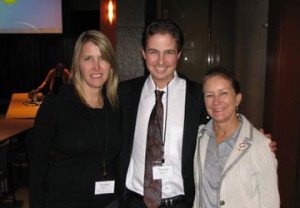Here is an update to this law! Good News! Trevor’s Law was finally signed into law by President Obama!
http://www.ktvb.com/news/politics/trevors-law-signed-into-law-by-president-obama/252658527
Hi Everyone,
Just wanted to let you know about some proposed legislation that you should care deeply about. It is titled Trevor’s Law. It was introduced by Sen. Barbara Boxer in the fall and has not yet been introduced in the House of Representatives. If passed, the bill would vastly improve tracking and response to disease clusters. You can sign a petition backing the legislation at www.trevorstrek.org. I am working with Fairhope Councilwoman Debbie Quinn to campaign for its passage. We recently met with an aide to U.S. Rep. Jo Bonner, R- Ala. and hope to get our Alabama senators to support and maybe cosponsor the bill as well.
The letter I wrote to Bonner explains why I think the bill is important.
April 18, 2011
Dear Honorable U.S. Rep. Jo Bonner,
My name is Lesley Pacey and I am the mother of Sarah Pacey, a leukemia survivor who was part of a childhood cancer cluster on the Eastern Shore of Mobile Bay, Ala.
I am writing to you to plead for your support for Trevor’s Law – Senate Bill S.76, which would vastly improve the government’s ability to detect and respond to disease clusters.
The bill – titled “Strengthening Protection for Children and Communities From Disease Clusters Act – was introduced in the fall of 2010 by Sen. Barbara Boxer, D-California. Currently, the bill _which is being co-sponsored by Sen. Mike Crapo, R-Idaho – also has several Democratic co-sponsors. But we need your support as well. The bill must have more Republican co-sponsors to ensure its success when it is introduced in the House of Representatives.
I hope and pray you will consider supporting for this important legislation.
State public health agencies around the U.S. receive about 1,000 requests every year for cancer cluster investigations, but those agencies are largely ill equipped to handle such investigations, according to a 2007 John’s Hopkins study and the National Disease Cluster Alliance.
Our great state of Alabama is no exception.
My daughter, Sarah, was part of a confirmed childhood cancer cluster on the Eastern Shore of Mobile Bay that occurred between 2000 and 2005. That cluster included six children, two of whom died.
In 2008, four years after Sarah was diagnosed with leukemia, I founded a nonprofit agency aimed at researching the scope and possible environmental causes of a spate of rare cancers – in children and adults – as well as neurological diseases on the Eastern Shore.
A nonprofit seemed the only chance our community had to find answers that we never got from our government health agencies.
Upon my request, the Alabama Department of Public Health began two rare cancer studies. They would be the first cancer cluster studies ever performed by the ADPH.
The first study, performed in 2005, ended abruptly a few months later with no explanation. The other study began in 2007. After admitting elevated levels of certain cancers in Baldwin County, and interviewing more than 50 people with rare cancers on a list of more than 90 people, that study ended for lack of money, lack of staff, lack of protocols, questionnaires that were “too open ended,” and because most cancer elevations in our area by this time appeared within normal ranges, according to state public health officials.
State public health director Charles Wornle in 2008 admitted that a childhood cancer cluster had occurred in our area. The astounding thing was that he also was telling us that his office could not and would not investigate it any further – mostly because of deficiencies within his department.
Environmental testing was never conducted and – with rare cancers still popping up on my radar at an alarming rate – I have tried to pick up where they left off, gathering the names of the chronically ill on my own and campaigning for partnerships with university researchers for environmental testing.
While I have a passion to protect my children and champion for my community, taking on what our government should have has amounted to a tremendous personal sacrifice for me and so many other parents and grandparents like me who are searching for answers when they would rather be spending precious time with their families.
So many communities throughout the U.S. have initiated, funded and organized their own studies because public health agencies simply aren’t doing their jobs and protecting our children.
Trevor’s Law provides the best chance we’ve ever had to overhaul our nation’s current practices in disease cluster response. Our public health system needs a new model for detection and response – and this legislation would provide it.
If passed, the law would appoint the Environmental Protection Agency as the central agency for disease cluster tracking and response; provide support to state and local health departments for disease cluster investigations; create response teams with expertise from a variety of fields, including community outreach; advance research to improve methods, guidelines, and tools used in disease cluster response; and increase community involvement in disease cluster response.
I support S.76- Trevor’s Law- because it is time that the local, state and federal governments finally acknowledge that when 46 children a day are being diagnosed with cancer, many of them in the same neighborhoods, that toxins in their environment may have played a part in causing the illness, and the innocent children deserve to have their government entities care enough to seek out the causes in as transparent a fashion as possible. S.76 will do this.
Please co-sponsor this legislation and encourage other lawmakers to vote for its passage.
Sincerely,
Lesley Pacey
